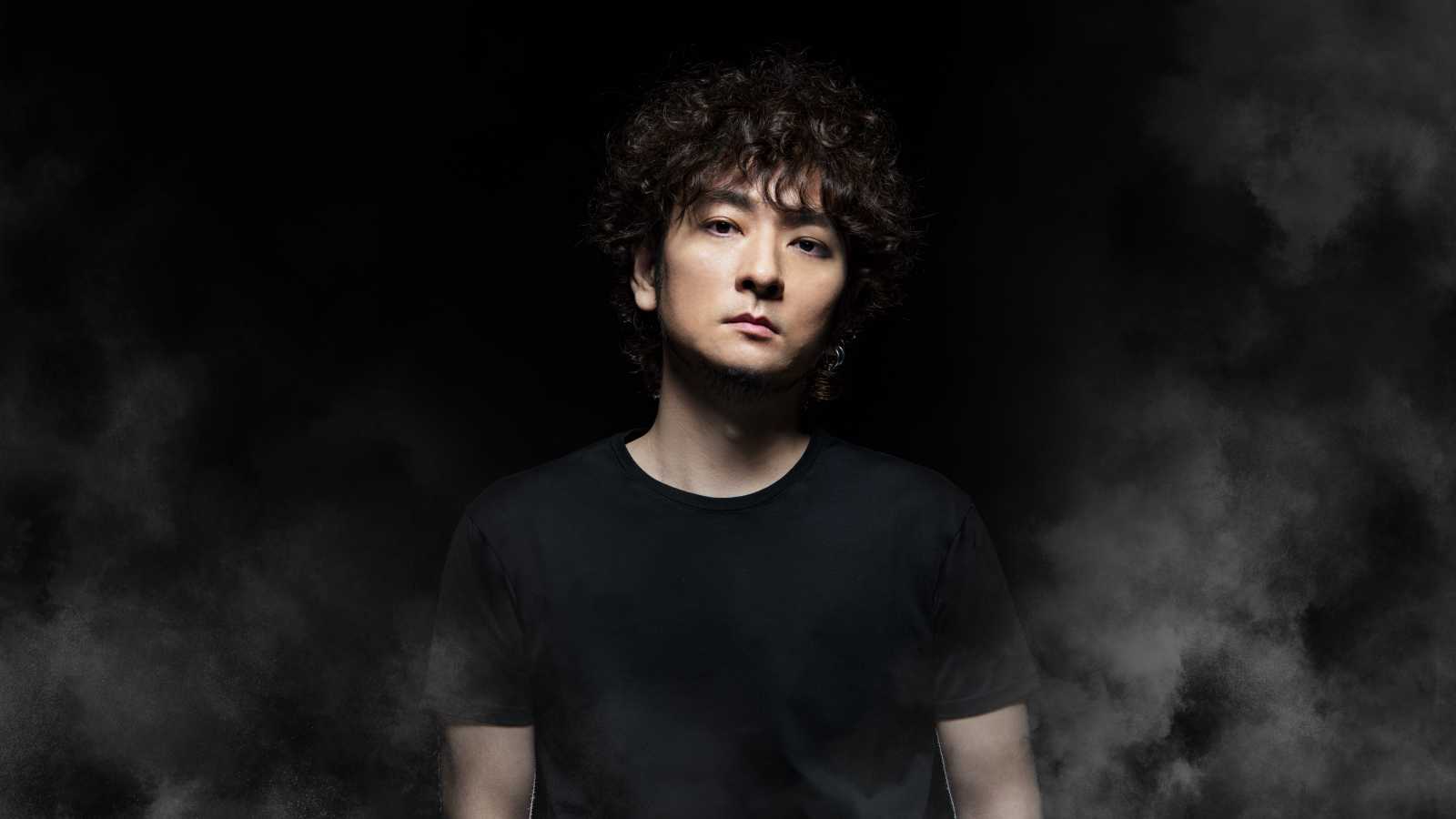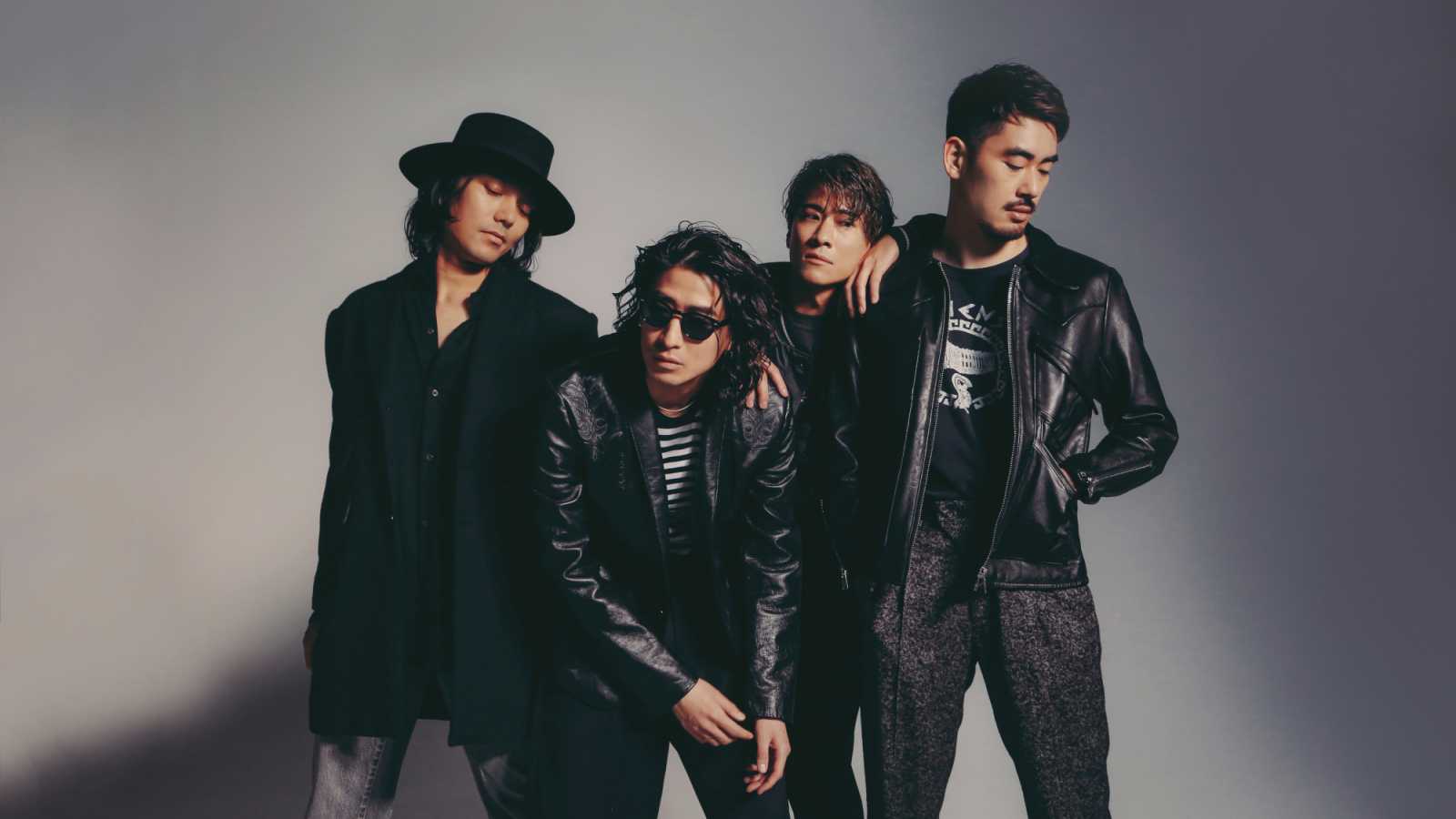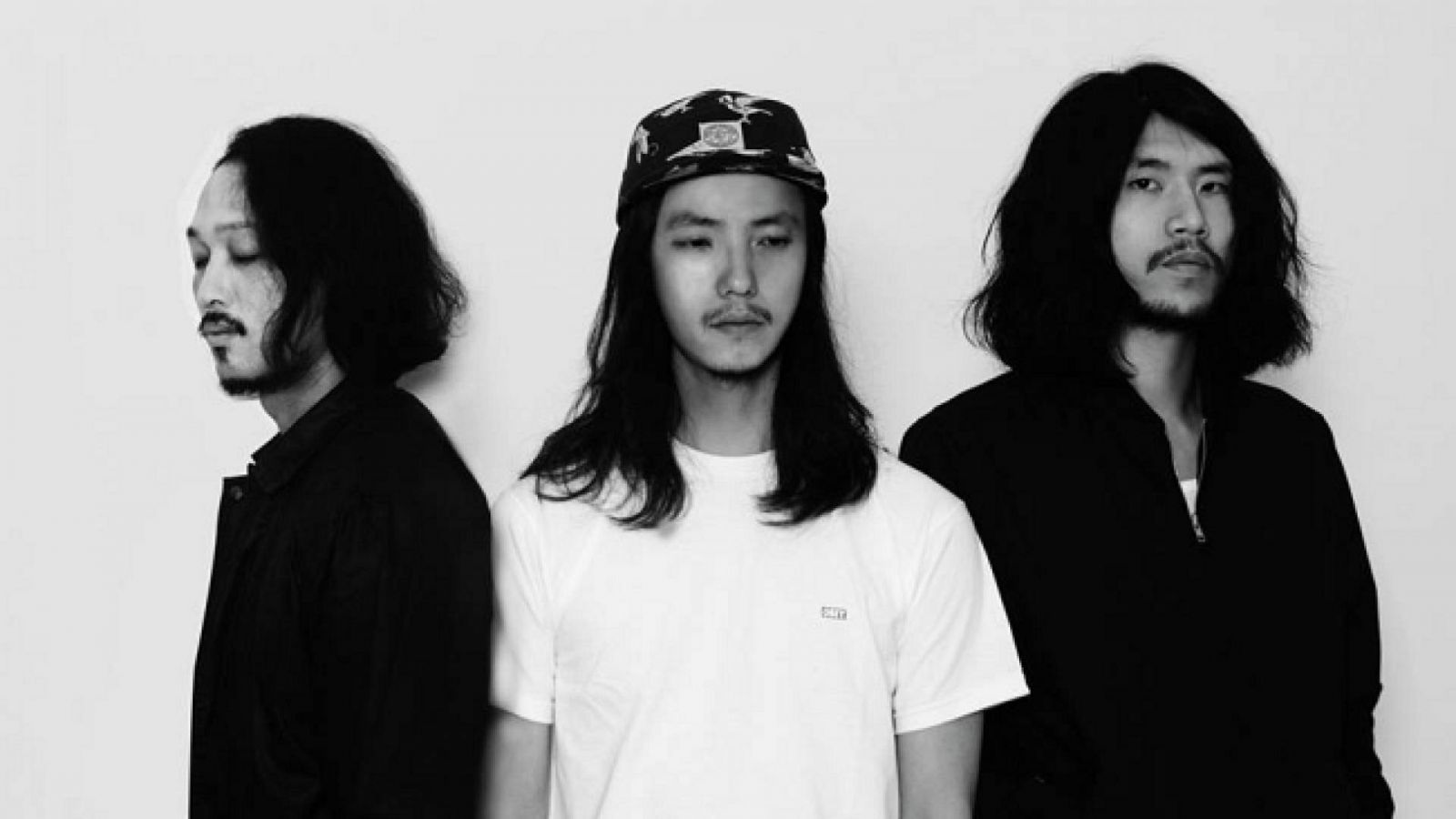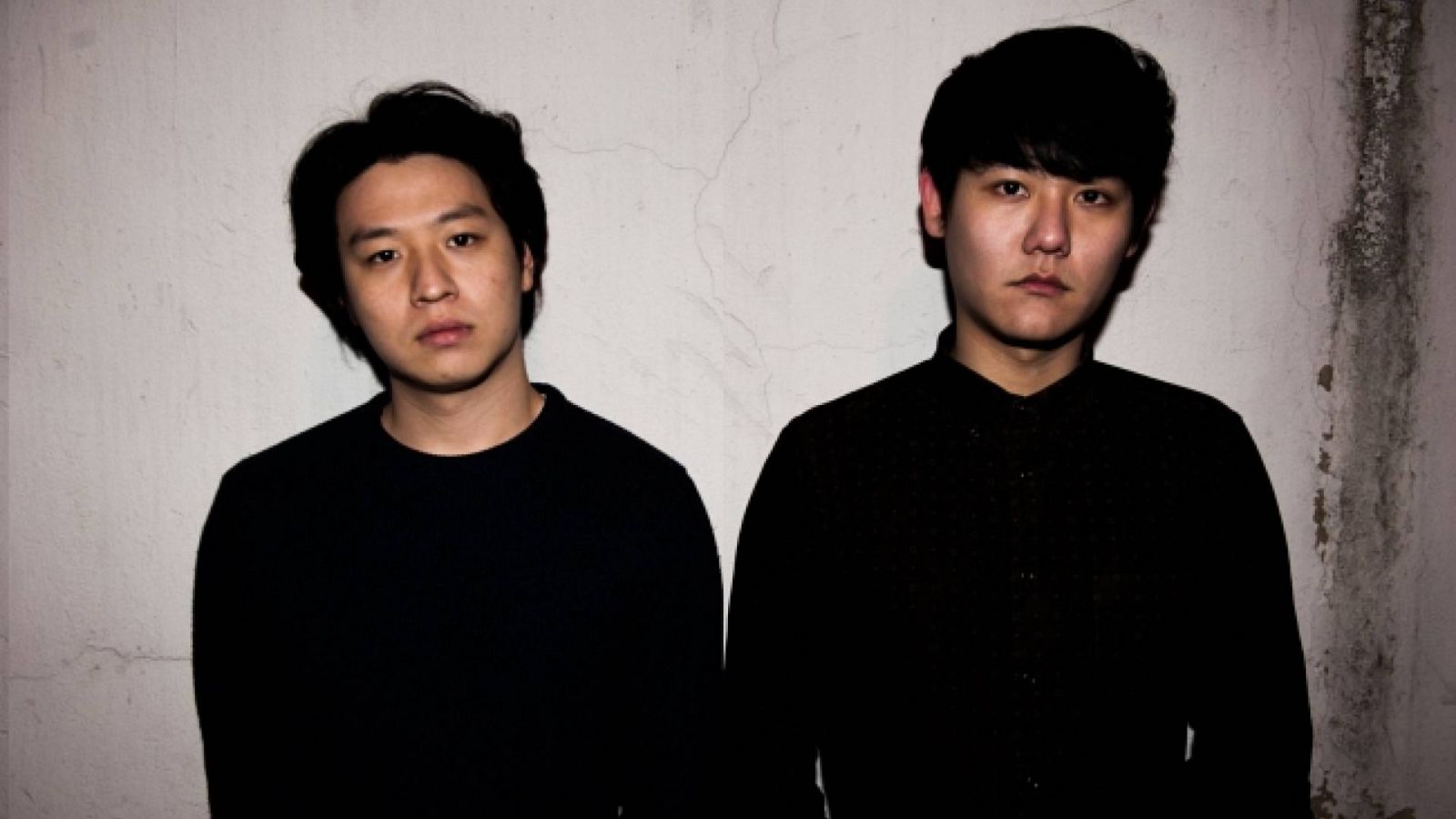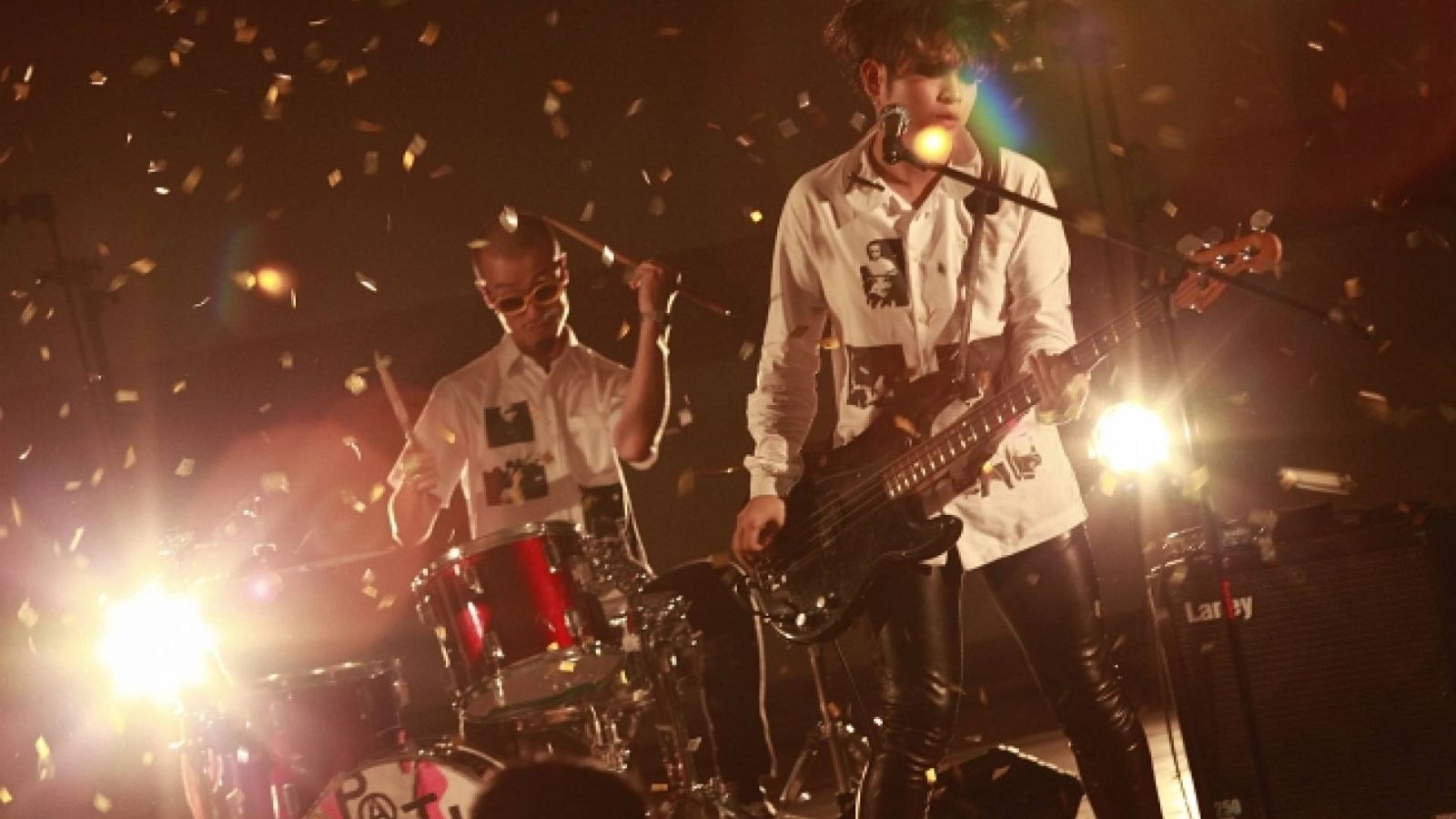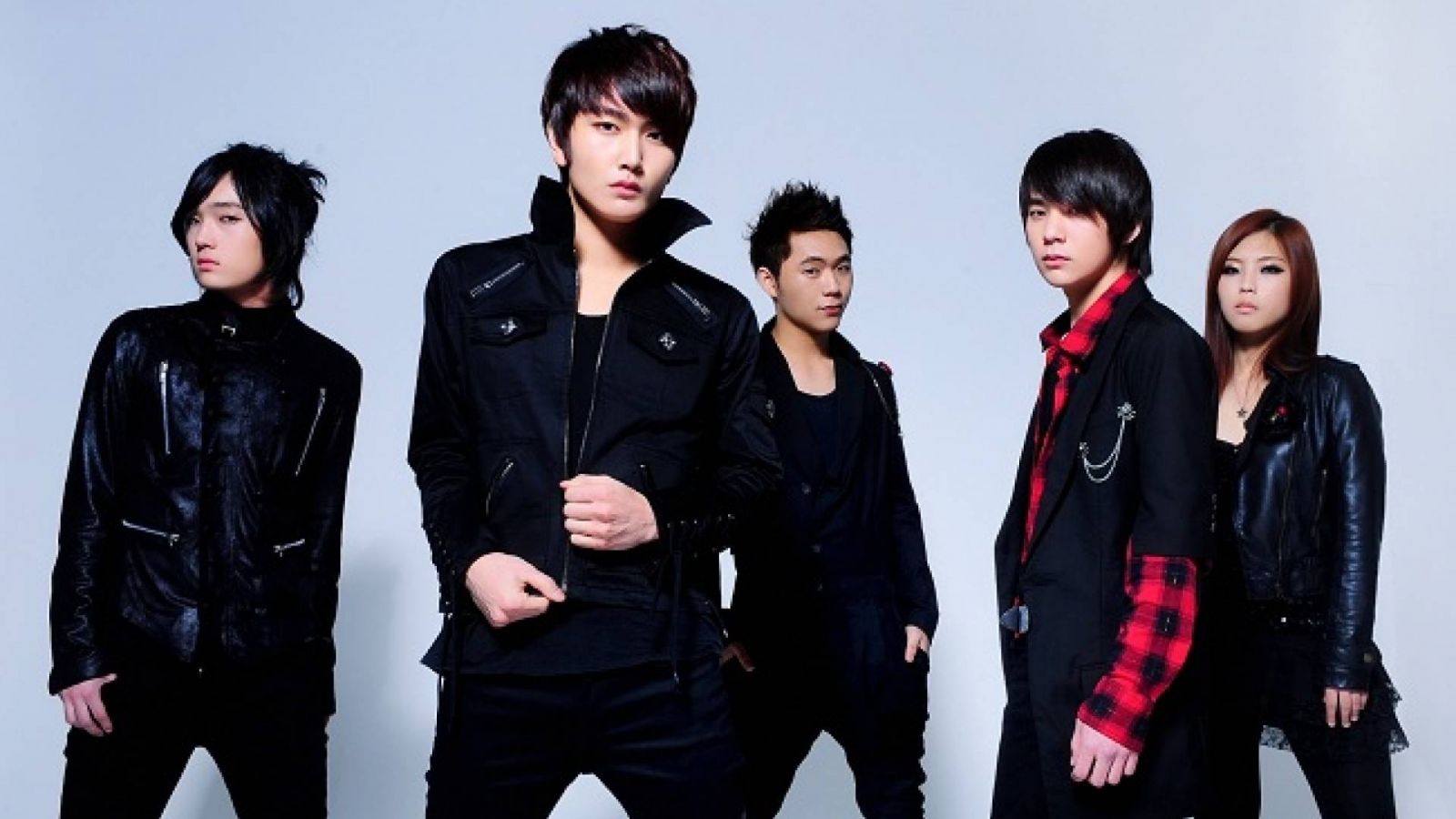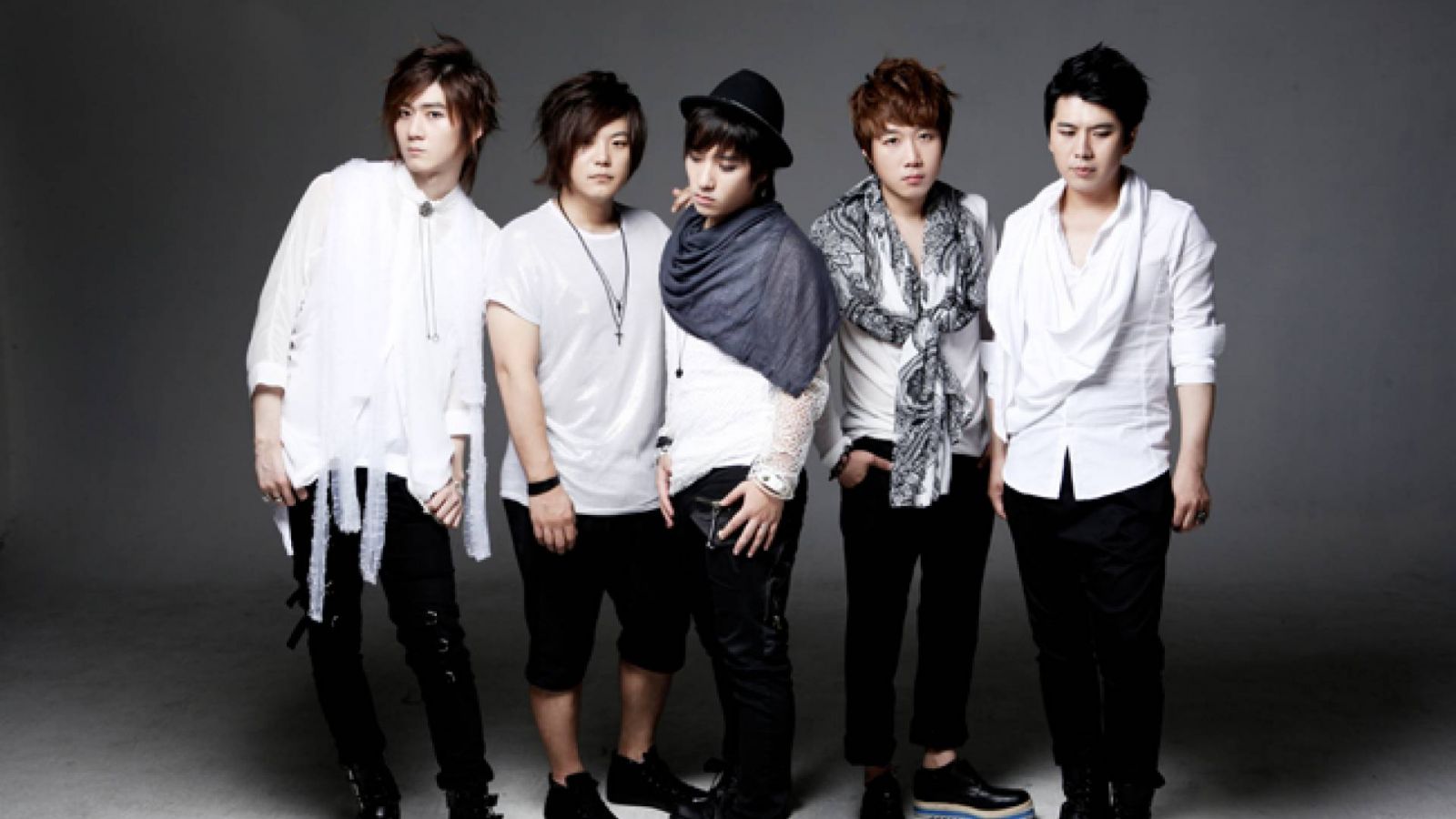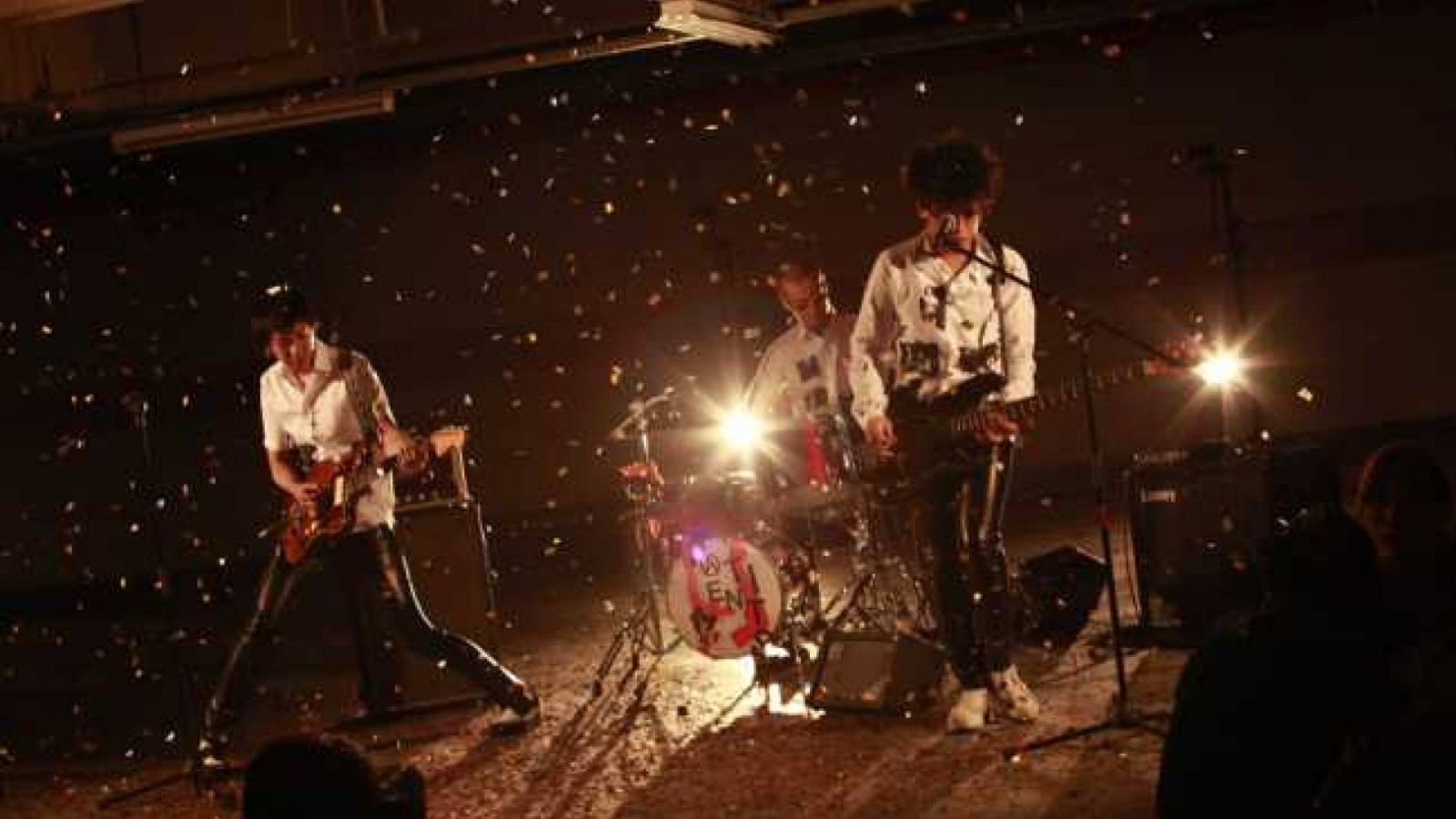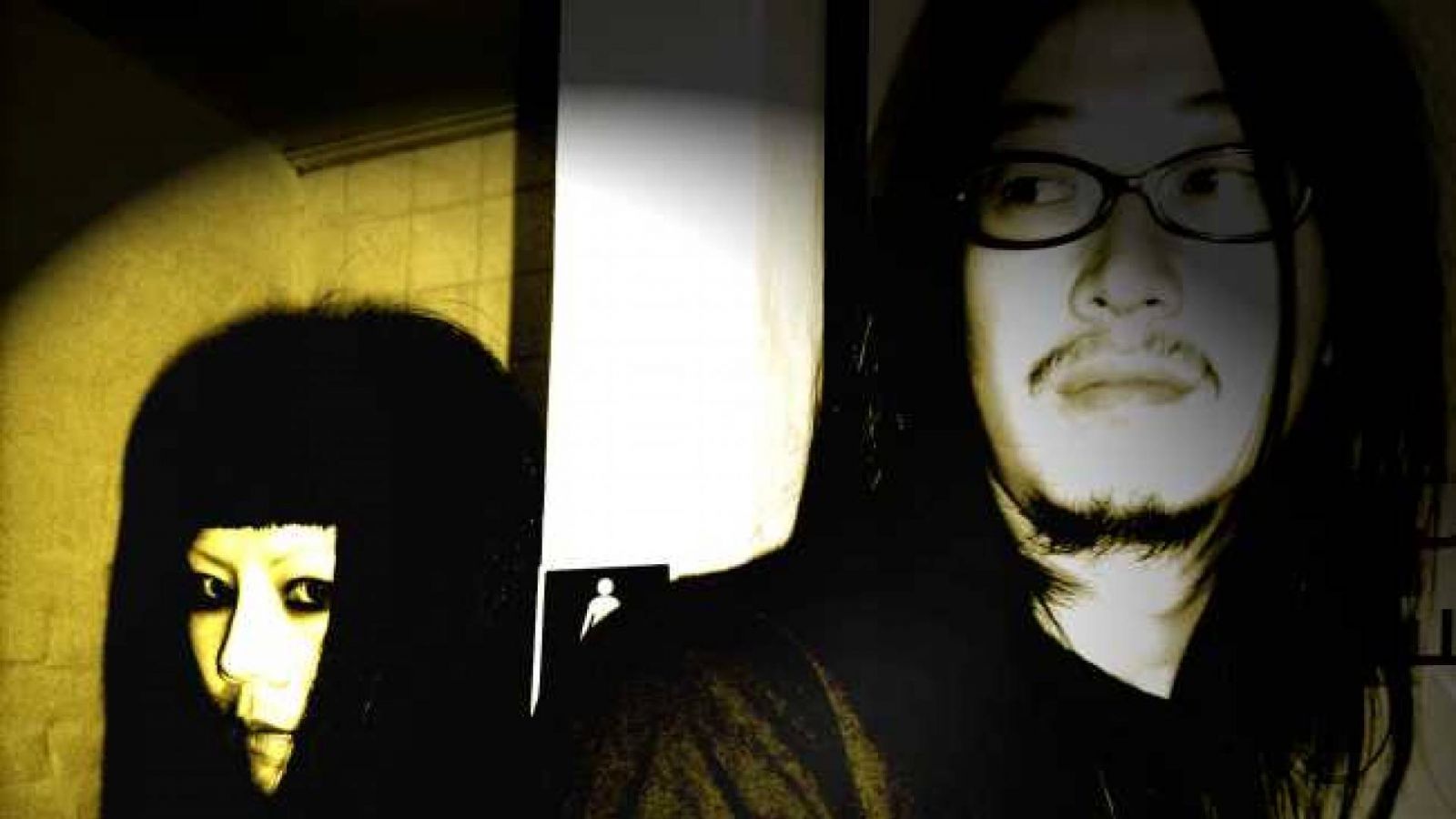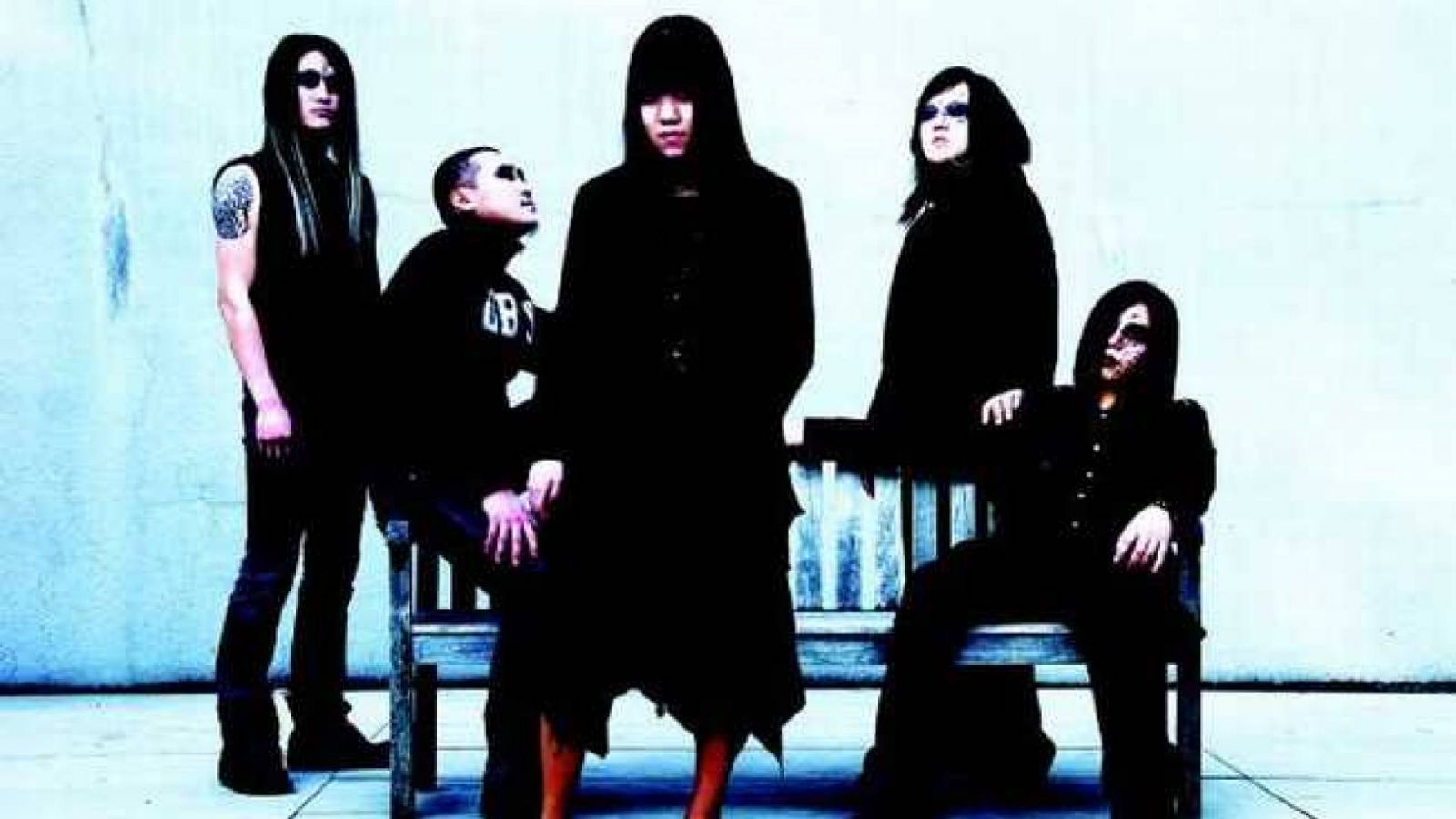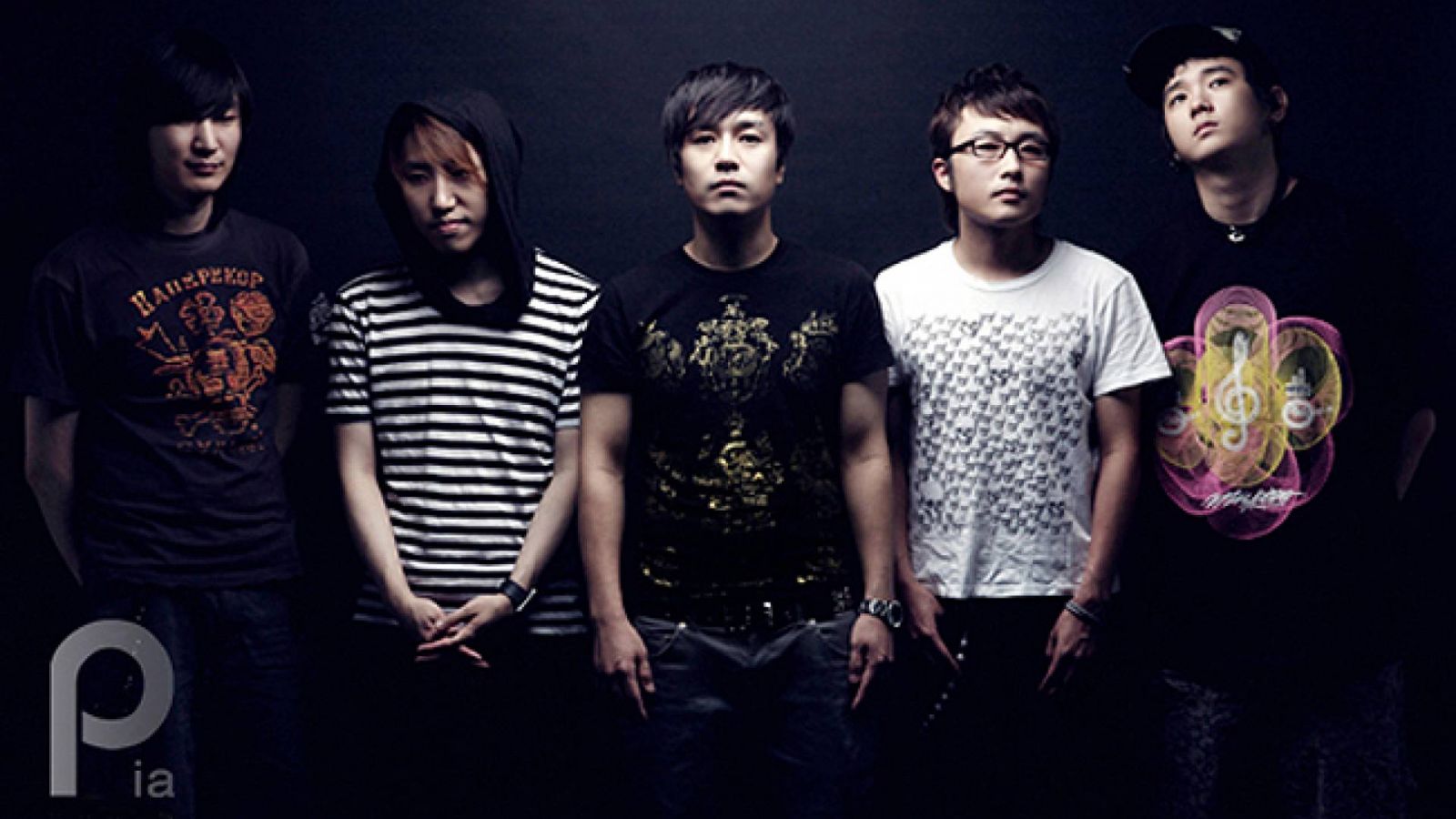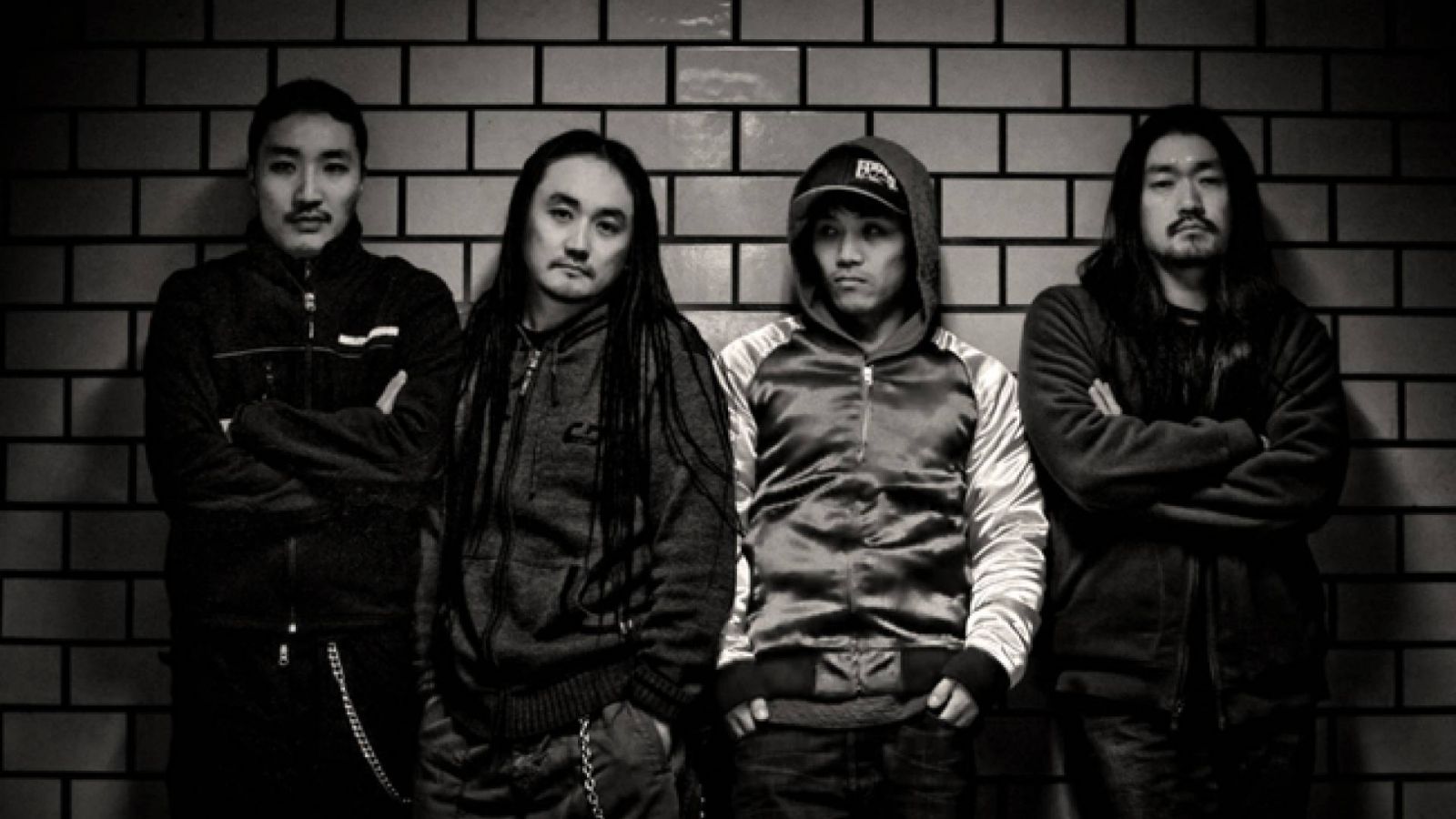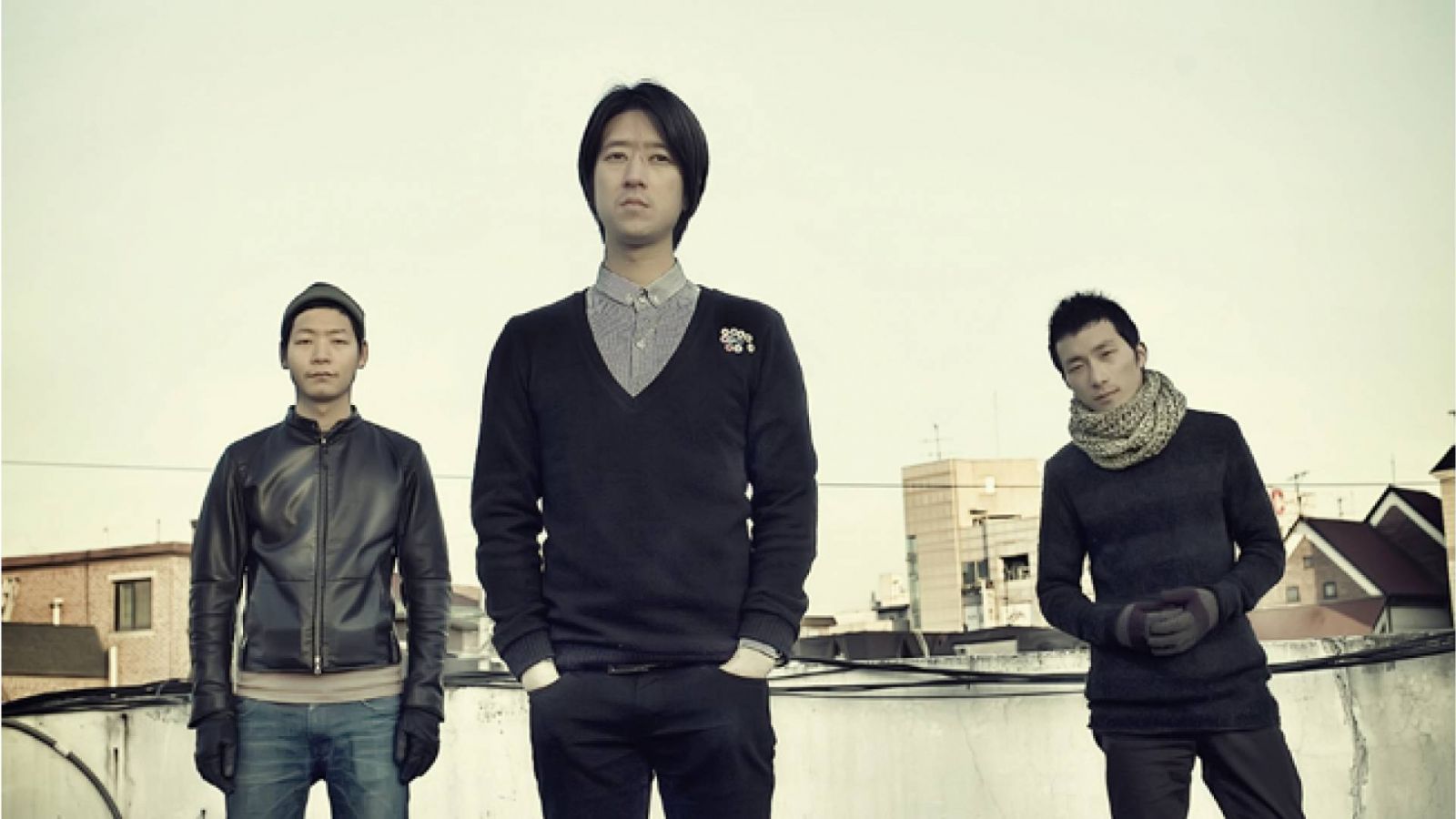As one of the most recognisable names in the Korean electronica scene,
Casker have made a name for themselves through live performances, albums and even being featured on the soundtrack for the popular drama series
Coffee Prince. With all this in mind, KoME took the opportunity to interview the duo about their career so far.
First, for those who dont know you already, can you introduce yourselves to our readers?
Casker: Hello. We are an electronic lounge music/pop duo from Korea. We consist of vocalist
Lee Yungjin and producer
Lee Junho. To date, we have released four regular albums and have been featured on several compilations, as well as drama soundtracks.
How did you first meet and how did you form Casker
?
Lee Junho: After creating the name
Casker through a techno compilation in the mid of the 90s, I,
Lee Junho, worked solo until the release of our debut album
Cheolgabhokseong [Note: meaning "The planet built with steel").
From the second album,
skylab, onwards I started working with
Yungjin. While searching for a vocalist a friend of mine introduced me to
Yungjin and for 5 years we've been a well-balanced team.
Where does the name Casker
come from? Who came up with this name?
Lee Junho: Casker is derivated from the character Caska of the Japanese manga
Berserk. Actually, I was once into manga, and
Berserk is one of my favourite ones. Caska is a character who exists between the two extremes of life. [note: he exists between good and evil within the human kind]
You are often compared to the band Clazziquai
. What do you think of this? What do you think makes you different from this band?
Casker: This kind of music is not very popular yet in Korea, so it seems there are comparisons. Our style and the emotions we are intending to express are completely different, though. In fact we don't pay much attention to characteristics of electronica.
Do you think electronic music is becoming popular in Korea? What do you see for the future of the genre?
Casker: Compared to the past, the audience has grown but it seems we haven't been able to appeal to the masses yet. We believe the most appealing style is limited to pop and lounge and there isn't as much electronic music as in England.
How would you describe your music to someone who has not heard it before? What are the main themes and inspirations for your songs?
Casker: If we had to describe our music to people who have never listened to it before, we would like to tell them that they should try to focus on the melodious and the emotional aspect rather than the electronic one. Our main theme is not electronica. We believe that various feelings that are derived from personal grief, relationships and sympathy ought to be reflected in our music.
The band is currently made up of just two members. Does this ever cause any problems for you as a group? Would you ever consider adding more members to the band?
Lee Junho: For performances we have to add members but while recording there are no problems, even with only two people.
Yungjin is an excellent vocalist as well as a talented musician.
How do you compose your songs? Do you write the music first and come up with lyrics later or do you have some other way of composing?
Lee Junho: We have various ways of composing, but usually we write the lyrics and the melody line after composing the tracks.
There are also times we come up with the lyrics first, especially if we want to use special words or phrases in our lyrics.
Your latest album was titled Polyester Heart. What is the meaning behind this title?
Casker: It is a synthetic heart. Polyester is a synthesised material we are using and wearing without being always conscious of its artificiality. Thus it plays a natural role in the lives of the people. The question "Is it inhumane just because it is unnatural?" is out-dated. We wanted to visualize that even though we create our music with the help of modern technology, our music itself is human and natural. This is the intention behind the title.
Can you tell us a little bit about this album?
Casker: Including the hidden track there is a total of 16 tracks. Generally it can be described as electronic pop. Based on lounge there are various types of music included. So far it is the most natural and gentle album we have released.
The track Neoreul sakje is a collaboration with Ha Dong Kyun
of Wanted
. Why did you decide to work with him on this track?
Casker: We were already acquainted before. We thought that a male voice would be best suited for the song and his voice fits perfectly.
Ha Dong Kyun's voice has a charm one can rarely find among Koreans.
Yungjin: you collaborated with Epik High on their 4th album. Can you tell us a little bit more about this? How did this collaboration come about? How was it working with such a high-profile group?
Yungjin: This was arranged by the company. We have never met before. Although it was said that I would be working with a famous team there was no difference to a normal collaboration. Inside the studio we were all just musicians.
You were featured on the soundtrack for Coffee Prince. Did you compose these songs especially for the drama? If not, how did you choose the songs that were featured?
Casker: Not only did we work on the soundtrack, but also on the background music for the drama as well. They were all tracks composed specially for the drama. So you could say that we stayed with the drama from the beginning until the end.
Last December, the group released the digital single Real Heart. Can you tell us a little bit about this single? Why did you decide to release it in digital format?
Casker: Two years have passed since the fourth album release and to fill this gap and to make a little present for the waiting people, we released this digital single. On this single we put songs from the new album and a special editions of previously recorded songs.
Recently, it has become fairly common for bands to release digital singles. Why do you think this is? Do you think its a good way to overcome the current low sales in the Korean music industry?
Casker: To lessen the risk of low sales caused by the worsening situation of the Korean music market, the digital single was created. It's an alternative to overcome the current situation through online music portals and digital releases. We don't think that artists are able to express themselves with just a single song instead of a whole album.
Your music videos usually contain strong imagery, such as the crying scene in the video for Nabibuin and the ballerina in the video for Goyangiwa na. Do you see music videos as being an extension of your art? How do you come up with the ideas for your videos?
Casker: Of course, music videos are an extension of our albums. Sometimes we are just using the ideas of our director. It also happens, that we are directly involved in the production. After finishing an album, both of us discuss what kind of emotions our music videos should convey.
Which part of your work do you enjoy the most: performing live or recording in the studio?
Casker: Live performances are pretty fun, but we are more frequently recording in the studio so we actually do prefer that. We aren't very extroverted, that's why we feel more comfortable in the studio.
Korean music is gradually becoming more and more popular in USA and Europe. What do you think of this? Would you like to release your music in countries outside of Asia?
Casker: If we had the chance, we would like to release something overseas. We know that there are foreigners who are able to get our albums and listen to our music via different methods, but if our music were to be licensed overseas, it would be easier to get in touch with our work. We are full of hope.
Are there any Korean artists in particular that you would recommend to our readers?
Casker: We recommend everything by
Yun Sang.
Do you have any plans to perform abroad in the future? If not, would you like to and which countries would you like to perform in in particular?
Casker: If there was a possibility, we really would like to perform abroad. A place where the electronica music market is bigger would be good. That way, we could learn more different things.
If we had the chance, we would perform in our neighbouring countries first, but our dream is to hold lives in Paris and London.
Any last messages for our readers?
Casker: We think it's great to introduce ourselves this way. If you open up yourself and listen to our music, you should be able to discover a wide range of new emotions. It would be even better if we are able to meet each other someday in the future. We wish you all the best.
KoME would like to thank Casker and Pastel Music for making this interview possible. For more information about the band, please refer to their official site.
